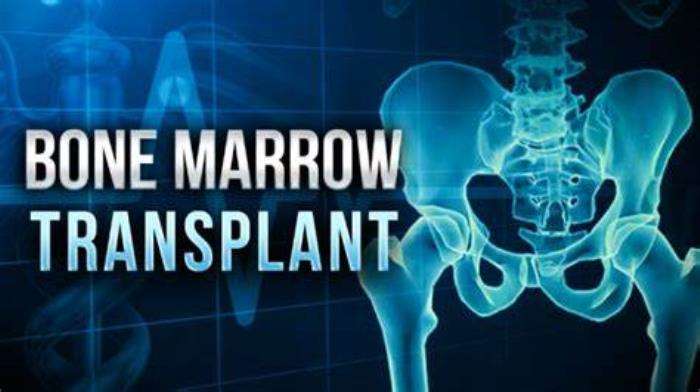Bone marrow transplantation is a critical medical procedure used to treat various hematological disorders, including leukemia, lymphoma, and aplastic anemia. It involves the replacement of damaged or diseased bone marrow with healthy stem cells, which can be obtained from a donor or the patient themselves. The procedure is complex and requires careful planning and execution to ensure the best possible outcomes. Post-transplant monitoring plays a crucial role in the recovery process, as it helps to identify potential complications and manage the patient's health effectively.
Medical disclaimer: This content is for general awareness and does not replace a doctor’s consultation. For diagnosis or treatment decisions, consult a qualified specialist.
Significance of Post-Transplant Monitoring
Post-transplant monitoring is essential for evaluating the success of the bone marrow transplant and ensuring the patient's recovery. This phase involves regular check-ups, laboratory tests, and imaging studies to assess the function of the new bone marrow and detect any signs of complications early. Continuous monitoring allows healthcare professionals to tailor interventions based on the patient's individual needs, thereby improving the chances of a successful outcome and enhancing the quality of life.
Common Complications After Bone Marrow Transplant
Patients undergoing bone marrow transplants are at risk of several complications, including graft-versus-host disease (GVHD), infections, and organ dysfunction. GVHD occurs when the transplanted immune cells attack the recipient's tissues, leading to symptoms such as skin rashes, diarrhea, and liver dysfunction. Infections are a significant concern due to the immunocompromised state of patients post-transplant. Regular monitoring allows for timely interventions, such as administering antibiotics or adjusting immunosuppressive therapy, to manage these complications effectively.

Role of Healthcare Professionals in Monitoring
A multidisciplinary team of healthcare professionals, including hematologists, nurses, and pharmacists, plays a vital role in the monitoring process. These experts collaborate to assess the patient's condition, interpret laboratory results, and make informed decisions regarding treatment adjustments. Their expertise ensures that potential complications are addressed promptly and that patients receive comprehensive care tailored to their specific needs.
Frequency of Monitoring Visits
The frequency of post-transplant monitoring visits can vary based on the patient's condition and the transplant protocol. Initially, patients may need to visit the clinic multiple times a week for the first few months. As their condition stabilizes, the frequency may decrease to bi-weekly or monthly visits. Regular assessments during these visits include blood tests, physical examinations, and evaluations of the patient's overall well-being, which are crucial for detecting any abnormalities early.
Laboratory Tests in Post-Transplant Monitoring
Laboratory tests are a cornerstone of post-transplant monitoring. Common tests include complete blood counts (CBC), liver function tests, and viral load assessments. These tests help evaluate the recovery of the bone marrow, liver function, and the presence of any infections or viral reactivations. Abnormal results may prompt further investigations or adjustments in treatment, highlighting the importance of regular laboratory assessments in managing the patient's health post-transplant.
Imaging Studies and Their Importance
Imaging studies, such as CT scans or X-rays, are often utilized in post-transplant monitoring to assess organ health and detect complications like infections or malignancies. These studies provide valuable insights into the patient's internal condition and help guide treatment decisions. Regular imaging can be crucial in identifying issues that may not be apparent through laboratory tests alone, thereby enhancing the overall monitoring strategy.
Managing Graft-versus-Host Disease
Graft-versus-host disease (GVHD) is a significant complication that can arise after a bone marrow transplant. It occurs when the donor's immune cells attack the recipient's tissues. Monitoring for GVHD involves assessing symptoms and conducting skin biopsies or other tests as needed. Early detection and management are critical for improving patient outcomes. Treatment may include immunosuppressive medications, which require careful monitoring to balance efficacy and side effects.

Infection Prevention Strategies
Infection prevention is a top priority in post-transplant care due to the patient's compromised immune system. Strategies include prophylactic antibiotics, vaccinations, and education on hygiene practices. Regular monitoring allows healthcare providers to identify any signs of infection early and initiate appropriate treatment. Patients are often advised to avoid crowded places and practice good hand hygiene to minimize their risk of infections.
Psychosocial Support in Post-Transplant Monitoring
The psychological and emotional well-being of patients post-transplant is as crucial as their physical health. Psychosocial support is an integral component of post-transplant monitoring, as patients may experience anxiety, depression, or fear of recurrence. Healthcare providers should assess the patient's mental health regularly and provide access to counseling services or support groups. Addressing these psychosocial aspects can significantly enhance the patient's recovery and overall quality of life.
Nutrition and Lifestyle Modifications
Proper nutrition and lifestyle modifications are vital for recovery after a bone marrow transplant. Patients are often advised to follow a balanced diet rich in vitamins and minerals to support their immune system. Regular monitoring allows healthcare providers to assess the patient's nutritional status and make recommendations for dietary adjustments. Additionally, incorporating physical activity, as tolerated, can aid in recovery and improve overall well-being.
Long-Term Follow-Up Care
Long-term follow-up care is essential for patients who have undergone a bone marrow transplant. This phase typically involves regular visits to monitor for late complications, including the risk of secondary malignancies and chronic GVHD. Continued assessment of the patient's health status helps ensure that any emerging issues are addressed promptly. Long-term follow-up also allows for ongoing support and education regarding health maintenance and lifestyle choices.
Patient Education and Empowerment
Patient education is a critical aspect of post-transplant monitoring. Educating patients about their condition, potential complications, and the importance of adherence to follow-up appointments empowers them to take an active role in their recovery. Providing clear information about warning signs and when to seek medical attention can significantly improve outcomes. Empowered patients are more likely to engage in self-care and adhere to treatment recommendations.
Technological Advances in Monitoring
Recent technological advances have enhanced post-transplant monitoring capabilities. Innovations such as telemedicine allow healthcare providers to conduct virtual visits, making it easier for patients to access care from home. Additionally, wearable devices can monitor vital signs and alert healthcare teams to potential issues in real-time. These advancements facilitate timely interventions and improve the overall efficiency of post-transplant care.
Collaboration Between Care Teams
Collaboration between various healthcare teams is crucial for effective post-transplant monitoring. Hematologists, nurses, pharmacists, and mental health professionals must work together to provide comprehensive care. Regular interdisciplinary meetings can help ensure that all aspects of the patient's health are considered, facilitating coordinated treatment plans. This collaborative approach enhances patient outcomes and fosters a supportive care environment.
Challenges in Post-Transplant Monitoring
Despite the importance of post-transplant monitoring, several challenges exist. Patients may face logistical issues, such as transportation difficulties or financial constraints, which can hinder their ability to attend follow-up appointments. Additionally, variations in individual responses to treatment can complicate monitoring efforts. Addressing these challenges through patient-centered solutions is vital to ensure that all patients receive the necessary follow-up care.
Research and Future Directions
Ongoing research in the field of bone marrow transplantation is focused on improving post-transplant monitoring techniques and outcomes. Studies aim to identify biomarkers that predict complications, enhance risk stratification, and develop personalized monitoring strategies. Future advancements may lead to more effective interventions and improved survival rates for patients undergoing bone marrow transplants.
Role of HLA Matching in Bone Marrow Transplantation
Understand the critical role of HLA matching in ensuring successful bone marrow transplants. Learn how compatibility impacts outcomes and recovery.
Conclusion: The Path to Recovery
In conclusion, post-transplant monitoring is a vital component of the recovery process for bone marrow transplant patients. It enables healthcare providers to detect complications early, tailor interventions, and support the patient's overall health and well-being. A multidisciplinary approach, combined with patient education and technological advancements, can significantly enhance the effectiveness of post-transplant care, paving the way for a successful recovery.
Best Bone Marrow Transplant in India
The Best Bone Marrow Transplant in India provides a vital treatment option for blood disorders and cancers, offering renewed hope through advanced medical techniques and high success rates.
Best Bone Marrow Transplant Hospitals in India
The Best Bone Marrow Transplant Hospitals in India are equipped with state-of-the-art technology and experienced hematologists, ensuring safe procedures and comprehensive patient care.
Bone Marrow Transplant Cost in India
The Bone Marrow Transplant Cost in India is affordable and competitive, providing access to quality care with transparent pricing for international and domestic patients.
Best Bone Marrow Transplant Specialists in India
The Best Bone Marrow Transplant Specialists in India are highly skilled in performing successful transplants, offering personalized care and advanced therapies tailored to individual patient needs.
FAQs
What is the purpose of post-transplant monitoring?
The purpose of post-transplant monitoring is to assess the patient's recovery, detect complications early, and adjust treatment plans accordingly. Regular evaluations help ensure the success of the transplant and the patient's overall health.
How often should a patient visit the clinic after a bone marrow transplant?
Initially, patients may need to visit the clinic multiple times a week. As their condition stabilizes, visits may decrease to bi-weekly or monthly, depending on individual needs and the transplant protocol.
What are the common complications monitored after a bone marrow transplant?
Common complications include graft-versus-host disease (GVHD), infections, and organ dysfunction. Regular monitoring helps identify these issues early and initiate appropriate treatment.
How can patients prepare for their post-transplant monitoring visits?
Patients can prepare by keeping a record of their symptoms, understanding their medications, and being aware of any changes in their health. This information can facilitate discussions with healthcare providers during visits.
What role does nutrition play in post-transplant recovery?
Nutrition is crucial for supporting the immune system and overall recovery. A balanced diet rich in essential nutrients can enhance healing and improve the patient's quality of life post-transplant.
Explore the impact of genetics on bone marrow disorders and transplants, including inherited conditions, donor compatibility, and personalized treatment strategies. Learn how genetic factors play a crucial role in transplant outcomes and long-term recovery. How Genetics Influence Bone Marrow Disorders and Transplant Success
Learn about the pre-transplant process for bone marrow transplants, including evaluations, donor selection, and medical preparations. Discover essential steps to ensure readiness for the procedure and maximize transplant success. A Comprehensive Guide to the Pre-Transplant Process for Bone Marrow Transplant Patients
Radiation therapy, specifically total body irradiation (TBI), plays a crucial role in bone marrow transplants. TBI is used as part of the conditioning regimen to suppress the immune system and kill cancer cells in the bone marrow. This helps to prevent rejection of the donor stem cells and prepares the body for the transplant. Recent advances, such as image-guided intensity-modulated radiation therapy (IG-IMRT), have made TBI more targeted and less toxic, improving outcomes and reducing side effects. Role of Radiation Therapy in Bone Marrow Transplants